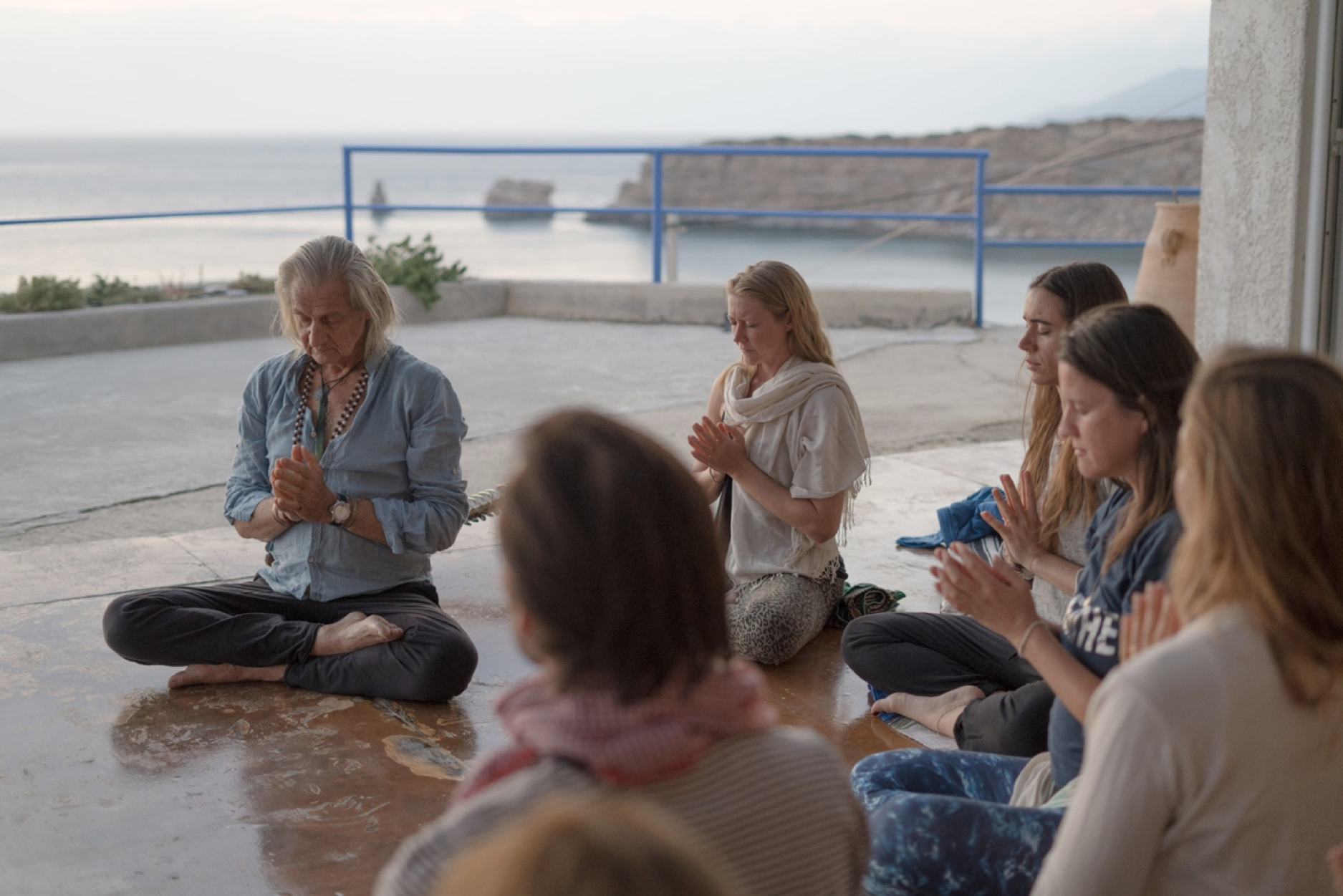Thoughts on Vairagya | Mark Whitwell
The goal of Yoga is vairagya, peace, or freedom in the midst of experience. This comes not through detachment or the avoidance of experience, but from natural participation in all arising conditions of life. Yoga is relationship and relationship is peace.
Tirumalai Krishnamacharya (1888–1989), the great scholar and ‘father of modern Yoga,’ translated vairagya in a beautiful way. He defined it as freedom relative to all experience.
He clarified that vairagya did not mean to remove yourself from experience, or to try and not attach to something — for example, me effortfully trying to not attach to you; rather, the opposite is true.
Krishnamacharya said freedom from all arising conditions arises when we merge with and digest our experience. And this applies to both pleasurable and painful moments.
For example, as we see our friends and family suffering in the pandemic and even dying we are not indifferent to that suffering. We have a loving and caring relationship to all circumstance — which includes grieving and feeling pain.
It is fundamental to Krishnamachayra’s teaching that Yoga is relationship. Even if the world or other people are in reaction to you, even if other people fail to love you, it is our spiritual responsibility to not react but to continue to be loving, open and available.
We do this both for the world’s sake but also for our own. When we react to experience and shut down we risk crushing the petals of our own heart.
The weight of religion and spiritual orthodoxy hangs over us with its hopeless method of detachment. People try to be spiritual and become free from all conditions by motive-fully trying to not get attached to anything, anyone or any result.
Through this lens, vairagya is traditionally understood as a spiritual practice of renunciation in which one tries to become peaceful and free through detaching from the world, all arising objects, other people, and from sense pleasures, relationship and sex.
Such an understanding is bound up with the entire religious proposal that our ordinary life is somehow negative and that we have to diminish and conquer sex, women, the body, the natural world, birth, and death, in order to get to some higher reality.
Having proposed this problem that God is somehow absent, we are encouraged to cultivate a dispassionate relationship to the ‘mundane,’ denying ordinary conditions, in the hope that one day we will get somewhere amazing.
U.G. Krishnamurti would say that the worst desire is the desire for desirelessness. The desire to become non-attached to outcomes is to be attached to an outcome. He would also say that it is impossible to surrender.
“It means there isn’t anything you can do. That is total surrender, total helplessness. It can’t be brought about through any effort or volition of yours. If you want to surrender to something it’s only to get something.
That’s why I call it a state of total surrender. It’s a state of surrender where all effort has come to an end, where all movement in the direction of getting something has come to an end” — U.G. Krishnamurti, The Natural State
Over time, or all at once, the practice of vairagya spontaneous dissolves into complete freedom which is known as kaivalya: complete motiveless freedom.
A movement from vairagya to kaivalya which is complete freedom, or complete indifference, only arises through a life of vairagya (not to be confused with Viagra).
You are indifferent to the world and its circumstances vis-a-vis your own freedom. You are not dissociated in an inward state. You are still available to the world but past caring for or dependent upon specific outcomes for your freedom.


Comments
Post a Comment